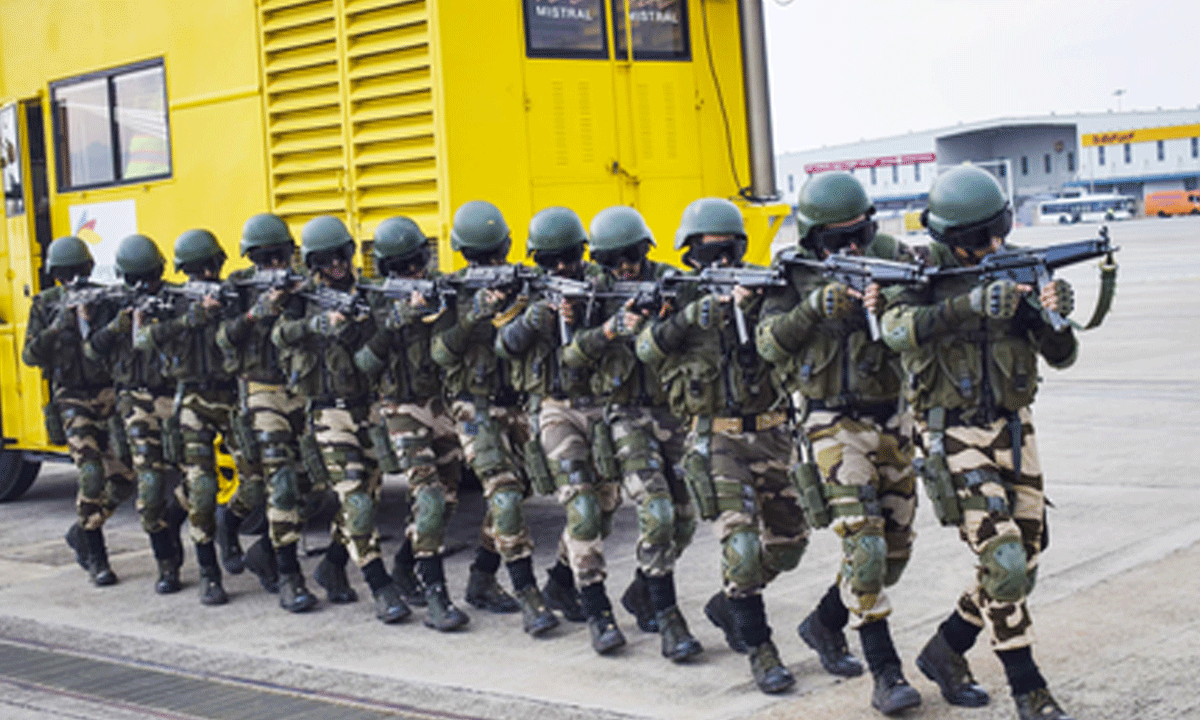CISF gears up for terror threats with Army-led combat training after Operation Sindoor
In the wake of the Pakistan-backed Pahalgam terror attack on April 22, and the subsequent Operation Sindoor launched by the Indian Armed Forces, the Central Industrial Security Force (CISF) has begun specialized combat training with the Indian Army in Jammu and Kashmir.

New Delhi: In the wake of the Pakistan-backed Pahalgam terror attack on April 22, and the subsequent Operation Sindoor launched by the Indian Armed Forces, the Central Industrial Security Force (CISF) has begun specialized combat training with the Indian Army in Jammu and Kashmir.
CISF Steps Up Post-Operation Sindoor
A top government official confirmed to IANS that several high-level meetings between the Union Home Ministry and CISF officials concluded that the force needs training equivalent to that of the Indian Army.
“In today’s scenario, CISF personnel must be prepared for an immediate response to terror strikes,” the official emphasized.
First-Time Training Alongside Army in Jammu & Kashmir
While CISF commandos have received limited Army training at centers in Chennai, Karnataka, and Bhopal, this marks the first time they are training directly with Army battalions in Jammu and Kashmir under the Northern Command.
120 QRT Commandos Already Trained
So far, 120 CISF Quick Response Team (QRT) commandos have completed the training. A third batch of 60 more personnel is set to begin soon.
The focus of this joint exercise includes:
- Urban and jungle warfare techniques
- Anti-drone warfare
- Crisis response for sabotage and terrorist attacks
Upgraded Readiness for High-Risk Installations
Officials stated the primary goal is to enhance CISF’s preparedness to respond quickly to threats at high-value and sensitive locations, including:
- Airports
- Nuclear and energy facilities
- Government buildings
- The Indian Parliament
Role in Operation Sindoor and Amarnath Yatra Security
During Operation Sindoor, 15 CISF companies were deployed in J&K. Following the ceasefire, they were reassigned to secure the Amarnath Yatra route, another high-security zone.
Modern Weaponry on the Horizon: AK-203 Induction Likely
CISF currently uses INSAS rifles, AK-47s, and sniper weapons. Officials confirmed that the force is in line to receive AK-203 assault rifles after distribution to the Indian Army and CRPF.
CISF’s Expanding Mandate
The CISF plays a crucial role in India’s security framework, providing protection to:
- Strategic sectors: Space, atomic energy, petroleum, steel, coal, electricity
- Infrastructure hubs: Delhi Metro, airports, monuments
- Dignitaries: Z+, Z, X, and Y category protectees
